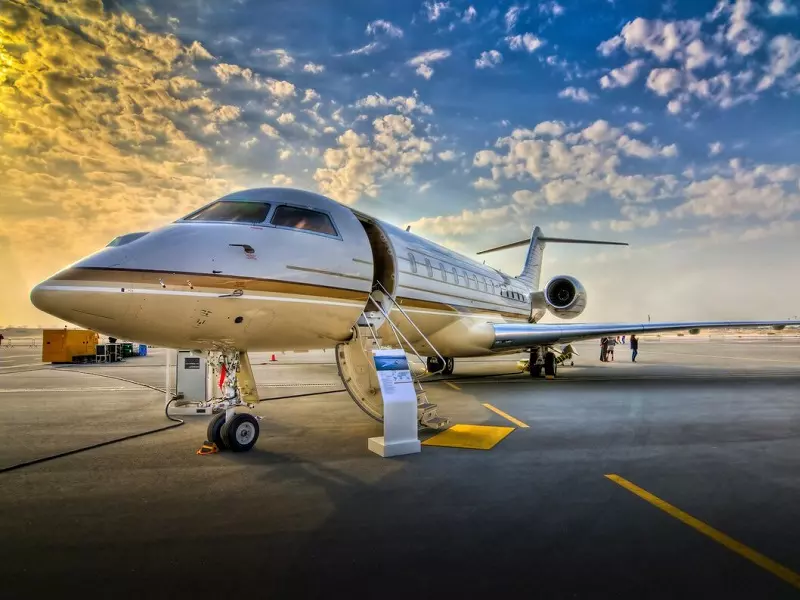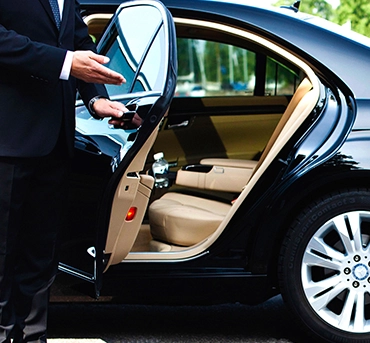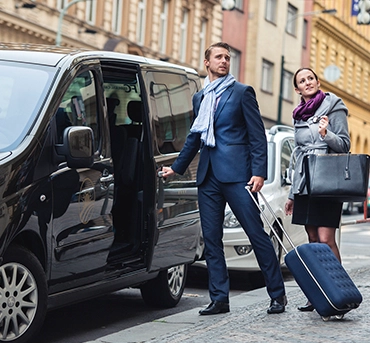
Aeroport
An airport is a place where airplanes take off and land. It serves as a hub for air and tourist traffic, making it central to mobility and exchange between people and cultures around the world. Airports consist of various infrastructures such as runways, passenger and cargo terminals, control towers, parking lots, and operational and service areas.
Airports are not only places to travel, but also important economic factors. They create jobs, promote tourism and contribute to the development of the surrounding regions. Modern airports also offer a variety of shopping, entertainment and dining options for passengers.
As the interface between air and land transport, airports play a central role in the global transport system. They enable the fast and efficient transport of people and goods over long distances and thus make a significant contribution to the networking of the world.
The importance of airports
Airports are now indispensable hubs in the global transport system. They perform a variety of functions:
- Mobility: Airports enable people to travel quickly and comfortably over long distances. They connect cities and regions with each other and thus facilitate the exchange between cultures.
- Economy: Airports are important employers and economic engines. They create direct and indirect jobs, promote tourism and contribute to the development of the surrounding regions.
- Logistics: Airports are central hubs for international freight traffic. They enable the efficient transport of goods over long distances in a short time.
- Security: Modern airports have sophisticated security controls to protect passengers, employees and infrastructure. They play an important role in the fight against crime and terrorism.
- Technology: Airports are drivers of innovation. They rely on the latest technologies to optimize processes, reduce emissions and increase passenger comfort.
Overall, airports are indispensable hubs that contribute to the interconnectedness of the world, economic progress and exchanges between cultures.
The world's main airports
Airports can be found all over the world, some of which are particularly noteworthy for their size, equipment and importance:
Airport
Layer
Number of passengers (per year)
Hartsfield-Jackson Atlanta International Airport
Atlanta, United States
107 million
Beijing Capital International Airport
Beijing, China
100 million
Los Angeles International Airport
Los Angeles, United States
87 million
Dubai International Airport
Dubai, U.A.E.
86 million
Tokyo Haneda Airport
Tokyo, Japan
85 million
O'Hare International Airport
Chicago, United States
84 million
Heathrow Airport
London, United Kingdom
80 million
Hong Kong International Airport
Hong Kong
73 million
Paris-Charles de Gaulle Airport
Paris, France
72 million
Amsterdam Airport Schiphol
Amsterdam, Netherlands
71 million
These airports are characterized by their enormous capacity, state-of-the-art infrastructure, and diverse services. They are important hubs of global travel and freight traffic.
Airport Security and Controls
The safety of passengers, employees and infrastructure is a top priority for airports. Therefore, airports are subject to strict security regulations and comprehensive control measures:
- Identity checks: All passengers must undergo a thorough security check before departure. Bodies and luggage are checked for prohibited items.
- Document verification: The identity of the travelers is verified by means of identity documents. Only with valid papers is it possible to enter the security area.
- Baggage checks: Both checked and carry-on baggage go through in-depth security checks. X-ray machines and explosive detection dogs are used.
- Access controls: Access to sensitive areas such as runways is only possible for authorized personnel. Biometric systems and access cards ensure access control.
- Video surveillance: Airports are equipped with a network of surveillance cameras to detect and respond to potential security risks at an early stage.
These comprehensive security measures help make airports safe places for travelers and employees. At the same time, they require passengers to spend a little more time and patience in check-in.
Airport services for passengers
Modern airports offer their passengers a variety of services to make their stay as pleasant and comfortable as possible:
- Check-in and baggage drop-off: Passengers can conveniently check in their baggage and check it in at the counters.
- Security checks: The security checks mentioned earlier ensure that travelers get on board safely.
- Lounges: Many airports have exclusive lounges where passengers can relax, work or dine in a quiet atmosphere.
- Gastronomy and shopping: Airports offer a wide range of restaurants, cafes and shops for passengers.
- Entertainment: Some airports even have their own cinemas, gaming zones or art exhibitions.
- Information services: Information centres, digital kiosks and signage help travellers find their way around the airport.
- Accessible services: Airports strive to provide barrier-free access for travellers with disabilities.
- Luggage Storage: For passengers who need to bridge time between flights, there are luggage storage options.
- Hotel bookings: Many airports offer the option of staying overnight directly at the airport or booking hotels in the area.
These diverse services help to make your stay at the airport as pleasant and stress-free as possible.
If you want to learn more about airports and their importance, I recommend reading our comprehensive article. Find out everything you need to know about the functions, the most important airports worldwide and the wide range of services offered to passengers.








